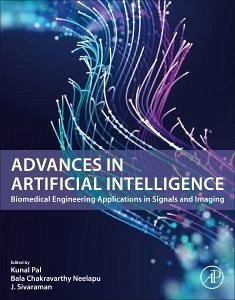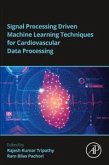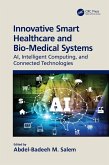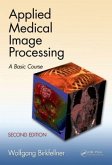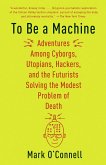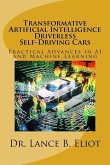Artificial intelligence in healthcare has become one of the best assisting techniques for clinicians in proper diagnosis and surgery. In biomedical applications, artificial intelligence algorithms are explored for bio-signals, such as electrocardiogram (ECG/EKG), electrooculogram (EOG), electromyogram (EMG), electroencephalogram (EEG), blood pressure, heart rate, and nerve conduction, and for bio-imaging modalities, such as computed tomography (CT), cone-beam computed tomography (CBCT), and MRI (magnetic resonance imaging). Advancements in artificial intelligence and big data have increased the development of innovative medical devices in healthcare applications. Advances in Artificial Intelligence: Biomedical Engineering Applications in Signals and Imaging provides an overview of artificial intelligence in biomedical applications, including both bio-signals and bio-imaging modalities. The chapters contain a mathematical formulation of algorithms and their applications in the biomedical eld, including case studies. Biomedical engineers, advanced students, and researchers can use this book to apply their knowledge in artificial intelligence-based processes to biological signals, implement mathematical models and advanced algorithms, and develop AI-based medical devices.

